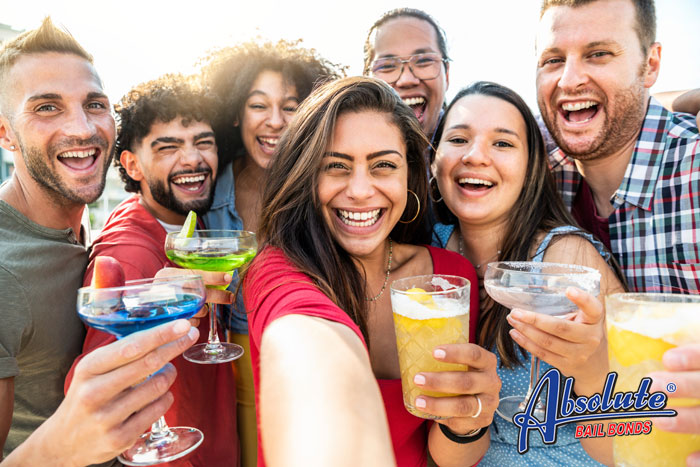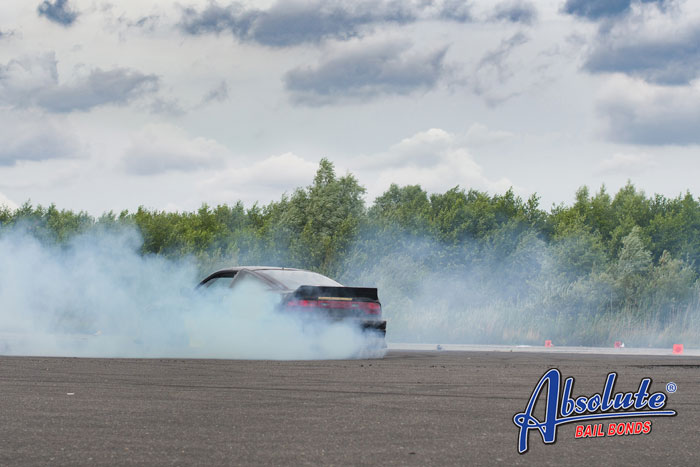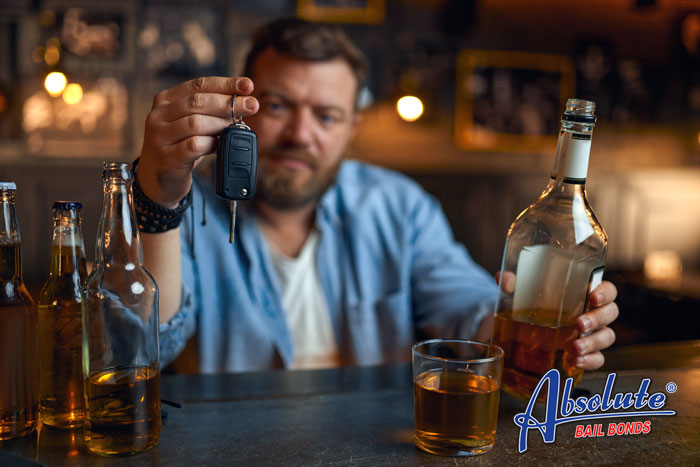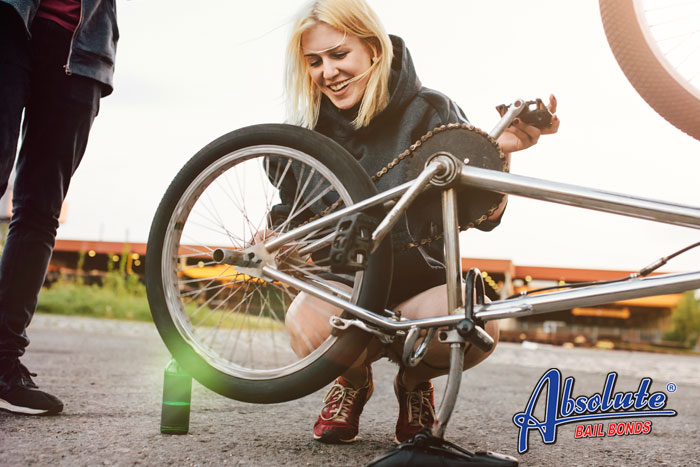
Is Public Intoxication a Misdemeanor in California?
Everyone knows that we’re not supposed to drink and drive. Many of us have gotten really good about making sure that whenever we go out to have a good time, we have a plan for getting home that doesn’t involve us driving. In some situations, we simply decide to walk home.
While walking home while you’re drunk is preferable to you driving while under the influence in California, you should be aware that it’s still not the safest option. All of the alcohol you’ve consumed slows your response time and dulls your reflexes. Not only does this make you an attractive target to any criminals you may encounter on your walk, but there’s also a chance a patrol officer could notice you staggering home and decide to charge you with public intoxication.
That’s right. Being extremely drunk while in public is a crime.
California even has a law that specifically deals with public intoxication. It’s Penal Code 647f PC. It clearly states that anyone:
“Who is found in any public place under the influence of intoxicating liquor, any drug, controlled substance, toluene, or any combination of any intoxicating liquor, drug, controlled substance, or toluene, in a condition that they are unable to exercise care for their own safety or the safety of others, or by reason of being under the influence of intoxicating liquor, any drug, controlled substance, toluene, or any combination of any intoxicating liquor, drug, or toluene, interferes with or obstructs or prevents the free use of any street, sidewalk, or other public way.
(g) If a person has violated subdivision (f), a peace officer, if reasonably able to do so, shall place the person, or cause the person to be placed, in civil protective custody. The person shall be taken to a facility, designated pursuant to Section 5170 of the Welfare and Institutions Code, for the 72-hour treatment and evaluation of inebriates. A peace officer may place a person in civil protective custody with that kind and degree of force authorized to effect an arrest for a misdemeanor without a warrant. A person who has been placed in civil protective custody shall not thereafter be subject to any criminal prosecution or juvenile court proceeding based on the facts giving rise to this placement. This subdivision does not apply to the following persons:
(1) A person who is under the influence of any drug, or under the combined influence of intoxicating liquor and any drug.”
Public intoxication in California is a misdemeanor. If you’re convicted, the maximum sentence is:
- Six months in a county jail
- A $1,000 fine
A public intoxication conviction may be embarrassing but it’s not an offense that will negatively impact your gun rights. It’s also possible to have the public intoxication charge expunged.

Are DUI Sobriety Checkpoints Legal in California?
No one likes DUI checkpoints. Not only do they make many of us nervous, even when we haven’t been drinking. There’s just something about getting caught in a checkpoint and seeing a police officer walking towards us that tends to activate a guilt complex, they also drastically extend the length of time it takes you to get from Point A to Point B.
As irritated as you might be that you were caught at a DUI checkpoint, you shouldn’t expect the state to stop using them anytime soon. The purpose of the checkpoints is to reduce the annual number of deaths and injuries that are the direct result of drunk driving incidents. As long as the checkpoints continue to catch drunk drivers, they will remain an issue you’ll have to deal with when driving in California.
Many people have protested that DUI checkpoints are illegal, that they’re a form of entrapment. The issue has even made it all the way to both the California and Federal Supreme Courts, who ruled that the checkpoints were legal. There are some rules that they must follow when the highway patrol sets up a California DUI checkpoint. These rules include:
- Arranging things so only the supervising officers are in charge of operational decisions;
- Establishing a completely neutral criteria for drawing motorists into the checkpoint.
- Making sure the checkpoint is set up in a location where the supervising officers can reasonably expect drunk drivers to pass-through
- The checkpoint is safe and all safety protocol is being followed
- The is sufficient evidence that the checkpoint will catch some drunk drivers
- That the checkpoint is organized in such a way that each person is detained for as short a period of time as possible
- Roadblocks are used to publicly announce the presence of DUI checkpoint
If you’ve never been caught at a California DUI checkpoint, it can be a bit overwhelming. The good news is that the checkpoint should be set up in such a way that it’s easy for you to grasp what you’re supposed to do.
When set up correctly, roadblocks are used so that vehicles slowly merge together before coming to a complete stop. One of the officers will approach your car and request the same material that they ask for during a routine traffic stop: driver’s license, proof of insurance, registration. What is a little different is that the officer will be intent on your behavior and will likely spend a little time chatting with you. They really aren’t interested in what you have to say, but rather how you say it and your overall behavior. They’re using the few moments of conversation to decide if you’ve been drinking.
Indicators the officer uses to decide if they should do a full sobriety test include:
- Fumbling
- The smell of alcohol
- Lack of focus
- Slurred speech
- Watery eyes
- Jittery behavior
- Shaking hands
The other thing the officer will do is a quick scan of the interior of your car. They’re looking for things like open containers, drug paraphernalia, and other signs that you were drinking (or consuming drugs) before and/or while you’re driving. The entire experience usually lasts about 30 seconds.
As a rule, the officers usually ignore passengers while they’re questioning the driver. This could change if the passenger acts like they are intoxicated. During a checkpoint, the officers do have the right to question anyone who is in the car, if they feel that the passenger represents a safety hazard to themselves, or the driver, the officer will have to decide how they should proceed. If there’s evidence that the passenger is under the influence of illegal drugs, they may decide to arrest the passenger. If you’re the passenger during a DUI checkpoint, it’s in your best interest to stay quiet.

Penalties for Illegal Street Racing in California
Yes, the Fast and the Furious movie franchise made street racing look like a great way of generating some excitement on a Friday night, but before you gather a group of your friend together to see who can drive the fastest, you should know that street racing, drag racing, and other vehicular speed contests aren’t legal on California’s public roads. They violate not one, but two of California’s laws: Vehicle Code 23103 VC (reckless driving) and Vehicle Code 23109 VC (speed contests).
You must understand violating either of these California laws by speed racing on one of California’s public roads won’t result in a simple ticket. In most cases, you’ll find yourself facing misdemeanor charges. If you’re convicted, you’ll go through life with a criminal record and have to pay some extremely hefty fines. You may even spend some time inside a county jail cell.
In order to secure a guilty conviction in a California street racing case, the prosecution must be able to prove that in addition to actually driving the car, you were also aware that you were street racing. You can’t be convicted of street racing if you simply happened to be in the wrong place at the wrong time and got swept up in a street racing sting.
You can be charged with street racing if you and another driver challenge one another to a race while sitting at a stoplight. In California, it only takes two people to create an illegal street racing situation.
The first time you’re convicted of participating in a speed contest in California, your sentence can include:
- A fine of up to $1,000
- Spending as much as 90 days in jail
If you’re convicted of speed racing a second time, you will lose your driving privileges. The second (and following times) you’re convicted of speed racing in California, you’re sentence could include:
- Mandatory six months of revoked driving privileges
- A fine that could be as much as $1,000
- A potential six months in jail
While you’re not legally allowed to engage in any type of speed contest while operating a vehicle on one of California’s public roads, you’re free to do what you like while on private property, including private roads. While the police won’t stop you from street racing on a private road, you still want to be careful. If someone is hurt because of your actions while you’re behind the wheel, it’s possible you’ll be named in a civil case.

Make Sure you Choose a Reputable Bail Bonds Agency
When you learn that one of your loved ones has been arrested and needs you to help them secure a California bail bond, the kneejerk reaction is to call the first bail bonds agency you see and sign a contract.
Granted, there is a chance that this could work out in your favor and you could find yourself working with a wonderful bail bonds agency that truly cares for both you and your loved one. The problem is that there’s also a chance you could find yourself dealing with a shady business that leaves you in a worse situation than what you were in before you contacted them.
Given how much money you will pay the bail bonds agency and the fact that you’ll be linked to them for several months, it’s in your best interest to choose the most reputable bail bond agency you can find.
Here are some things you should look for that tell you you’re dealing with a reputable company.
Free Consultations
A free consultation is a good sign. Not only does it provide you with a free way of learning about the bail bonds process and the California bail program, but it’s also an excellent way to establish a connection.
If you’re dealing with a reputable bail bond agency, they will use the consultation to answer all of your questions, get some background information on your loved one, and make sure you fully understand how the California bail bond system works. What you shouldn’t experience during the consultation is pressure to make a fast decision and sign with the agency.
Upfront Fees
A reputable bail bonds agency will be upfront about all their fees and charges. The standard fee for a bail bond is 10% of the set bail price. In some cases, it may be a little less if the agency offers a good discount, but it shouldn’t be more.
Some disreputable agencies will try to pad the fee by adding some hidden charges to the bill. If the agency isn’t upfront about all the items on their bill, or if they try to charge more than 10%, you need to look for a different California bail bond agency.
They Have a Good Reputation at the Jail
There’s nothing that says you can’t ask officers and court officials who are hanging around at the jail for suggestions about reputable bail bond agencies. They’ll probably be happy to provide you with a few ideas.
Absolute Bail Bonds in Lynwood has been operating in California for several decades. We have a reputation for fair prices, outstanding customer service, and for writing bail bonds and springing people from jail in a short time frame. When one of your loved ones requires bail, we suggest calling us. We’re confident we can help. We’re open 24/7 and all consultations are free.

Absolute Bail Bonds Makes Your Life Easier After An Arrest
When you get that phone call from a loved one inside jail telling you they need help to meet bail, your heart sinks, your temper rises, and your stress elevates. Where do you start to get this money to pay for bail? Simply call Absolute Bail Bonds in Long Beach.
Absolute Bail Bonds specializes in writing up a bail bond to get people out of jail. On top of that, the company is consistent in meeting and exceeding client expectations of not just doing the job, but doing it with compassion and eagerness. We truly care about our clients, and making their life easier after an arrest.
It doesn’t matter if it’s the middle of the night, the middle of the day, or the middle of a Federal holiday, we’re here and ready to post a bail bond for you!
Let us help you rescue your loved one from jail without requiring you to empty your bank account. We work with all of our clients to create individualized payment plans that are designed to work with your unique situation. This way, you can break up the already smaller cost of the bail bond, into affordable & flexible monthly payments.
Give us a call at 1-800-793-2245 to get the bail bonds process started today.

Unsure About Getting A Bail Bondsman? Here’s Why You Should
Our team here at Absolute Bail Bonds aims to get your loved one out of jail, and change people’s perceptions on bail bonds. Bail bonds are directly related to negative situations – someone is arrested and needs to be bailed out of jail. What good thing can be related to an arrest?
Have you thought of bail bonds in the way that because it gets someone out of jail, it reunites your family? That’s a positive thought. And more often than not, most family and friends strengthen their bonds with each other as a result of this bail bond release.
It often takes an outside perspective to change the view of something so dark to something that is relieving and much needed. Without this bail bond experience, relationships between friends and family may never experience that much needed tightening.
To get a free consultation on a bail bond, or to simply just get more information, please visit us online to chat with one of our representatives, or call us at 1-800-793-2245.

What are Considered Attempted Crimes in California
We’ve all heard stories about people who are charged with attempted crimes such as attempted murder, attempted assault, or attempted burglary. While we’re familiar with the concept of attempted crimes, few of us fully understand how it’s possible to be charged and even convicted, of a crime that didn’t actually happen.
The issue of attempted crimes in California is discussed in Penal Code 664 PC. The law defines attempted crimes as any instance when a person makes a concentrated effort to pull off an actual crime and break the law. The fact that the intent was real, even if the person failed to completely follow through in their attempt to break the law.
The law specifically states that “every person who attempts to commit any crime, but fails, or is prevented or intercepted in its perpetration, shall be punished where no provision is made by law for the punishment of those attempts.”
There are several examples of attempted crimes. These examples include:
- A victim escaping and fleeing from a sexual assault scenario
- Breaking into a house, but being stopped before anything is actually stolen
- A gun backfiring during what would have been a murder
The interesting thing about the way California handles attempted crimes is how the sentencing is handled. The rule of thumb for attempted crimes in California is that the maximum sentence for a guilty conviction will be one-half of the maximum sentence had the accused been able to complete their crime.
Composing a successful attempt for attempted crimes in California generally depends on how much evidence the police have gathered, the type of attempted crime the accused is facing, and how close they came to committing the crime.
Some successful defenses that have been used in the past include:
- That while the accused may have considered the crime, there is no evidence that they would actually carry through with it
- The accused was framed
- The accused didn’t realize that they were about to break the law
Whether the attempted crime is handled as a misdemeanor or a felony depends on how the charges would have been handled had the law actually been broken. This means that there are both misdemeanor and felony attempted crime cases going through the California legal system all the time.
While some maintain that it’s unreasonable to charge and convict people of attempted crimes in California, there is little chance that things will change any time soon. California lawmakers hope that by continuing to pursue attempted crime cases they will:
- Discourage people from breaking the law
- That people realize that there are consequences for actions, even if the actions aren’t fully carried through
The best way to make sure you’re never charged with an attempted crime in California is by never even planning a hypothetical crime.

What Happens if You Hurt Someone in a Drunk Driving Accident?
Driving while drunk isn’t just frowned upon in California, it’s illegal. While you’re allowed to go out and have a good time, if that good time involves drinking alcohol, you need to pay careful attention to how much you consume. As soon as your blood alcohol level reaches 0.08%, you’re no longer legally allowed to drive.
What Happens if You Get Caught Drunk Driving in California?
Don’t assume that just because you’ve never had a drunk driving offense that you have nothing to worry about the first time you’re charged with drunk driving in California. Even though it’s your first offense, it’s still going to have a massive impact on your immediate future.
First the fines. California law is written in such a way that in addition to being required to pay anywhere from $390-$1,000 in fines, you can also pay something that’s called penalty assessments.
Once you’re convicted of first-time drunk driving the judge has the option of sentencing you to jail time. This is in addition to the fines. While there’s no mandatory jail time for a first-time drunk driving conviction, the judge could decide that you need to spend 48 hours to 6 months in jail.
Plan on losing your driving privileges. As soon as you’ve been officially convicted of your first DUI, your license will be suspended for six months. If you refused to submit to a bloc alcohol concentration test, an administrative license suspension could also be enforced which would mean losing your license for a full year.
What Happens if Someone is Injured Because you Were Driving Drunk in California
There’s no way of getting around the fact that if you injure someone while you’re driving drunk, you’ll face far more serious consequences for your actions than if you’re simply pulled over. How severe those additional consequences depends on several different factors including:
- If you have a previous history of DUI
- How severely injured the victim is
- Additional circumstances surrounding the incident
In California, DUIs that involve injuries are treated as wobblers, meaning they can be handled as either a misdemeanor or a felony. If the circumstances surrounding the incident indicate that your case is a felony, you could be sentenced to up to four years in prison and be required to pay a maximum fine of $5,000.
In addition to facing criminal charges, you’ll also likely be named the defendant in a civil case. During the civil case, your victim will seek financial compensation for both their medical expenses and their emotional/physical pain and suffering.
Considering the negative impact a DUI has on your life, it’s in your best interest to always have a designated driver whenever you go out and drink.

Riding Your Bike Under the Influence of Drugs or Alcohol
The rising fuel costs are causing many of us to take a second look at our bikes. Now they not only seem like a pleasant way to stay in shape but also a viable way to ease transportation costs. Not only can you use your bike to get from your home to your workplace, but you can also use it to go out at night. Not paying for gas means you’ll have more money in your pocket for drinks, and since you’re cycling rather than driving you don’t have to worry about watching how much you drink.
California law prohibits you from driving and cycling while under the influence of drugs and alcohol.
California is so serious about making sure that you don’t bike while under the influence that they created an entire law that deals with anyone who is under the influence when they mount their bike.
The law is California Vehicle Code 21200.5 VC and it states that:
“Notwithstanding Section 21200, it is unlawful for any person to ride a bicycle upon a highway while under the influence of an alcoholic beverage or any drug, or under the combined influence of an alcoholic beverage and any drug. Any person arrested for a violation of this section may request to have a chemical test made of the person’s blood, breath, or urine for the purpose of determining the alcoholic or drug content of that person’s blood pursuant to Section 23612, and, if so requested, the arresting officer shall have the test performed.”
The good news is that while the law prohibits you from cycling while under the influence (CUI) the fallout from doing so is nowhere near as life-altering as getting a DUI.
When you’re charged with a CUI you will only face misdemeanor charges. If you’re convicted of CUI in California you won’t spend any time in jail and the maximum fine you’ll face is $250.
While the potential fallout from a CUI isn’t as severe as what you’d get if you were convicted of a DUI, that doesn’t mean you shouldn’t take the situation seriously. The first issue is that you will have a criminal record that shows an alcohol-related offense.
The second thing to consider is that if you’re cycling under the influence and accidentally hurt someone you will face additional legal and civil penalties that could have a long-term negative impact on your life.
While it’s okay to go out and have a good time, when all is said and done, it’s better to have a designated driver than to cycle home after an evening of fun and drinks.


